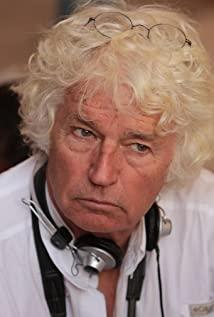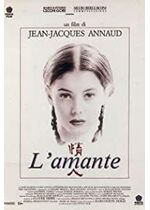-
The Young Girl: It's me. I am always a little sad. I'm like my mother.
-
The Elder Brother: Do you want to fight? Take care little buddy. It'd take two of you to do the job.
The Chinaman: Oh no. A lot more than that. Four of me. You have no idea how weak I am...
-
The Chinaman: My body no longer wants the one who does not love.
-
[first lines]
Narrator: Very early in my life, it was too late. At eighteen it was already too late. At eighteen I aged. This aging was brutal. This aging, I saw it spread over my features, one by one. Instead of being frightened by it, I saw this aging of my face with the same sort of interest I might have taken for example in the reading of a book. That new face I kept it. It's kept the same contours, but its matter is destroyed. I have a destroyed face. Let me tell you again: I'm fifteen and a half. It's the crossing of a ferry on the Mekong.
-
[last lines]
Narrator: Years after the war, after the marriages, the children, the divorces, the books, he had come to Paris with his wife. He had phoned her. He was intimidated; his voice trembled, and with the trembling it had found the accent of China again. He knew she'd begun writing books. He had also heard about the younger brother's death. He had been sad for her. And then he had no more to tell her. And then he told her - he had told her that it was as before, that he still loved her, that he would never stop loving her, that he would love her until his death.
-
Narrator: "Now and then I go back to the house in Sadek. To the horror of the house in Sadek. It's an unbearable place. It's close to death. A place of violence of pain of despair, of dishonour... But it's in this family's dryness in it's incredible harshness that I am the most deeply assured in myself. In the deepest of my essential certainties, all common history of ruin and shame, of love and hate is in my flesh."
-
Narrator: Dusk one evening on board ship, crossing the Indian Ocean under the luminous sky. Suddenly the sound of a Chopin waltz came bursting out from the main lounge. I had tried to play it for months without success. That's why I gave up the piano. There wasn't a breath of wind and the music pervaded the whole ship. I stood up as if to go and throw myself into the sea. Then I did weep because I had thought of my Chinese lover, and I was suddenly not sure that I hadn't been in love with him after all, with a love I hadn't been able to see because it had become lost in the tide of events, like water seeping through sand. Thanks to that music, spreading over the sea and filling the calmest night I have ever known, I could see my love for him for the first time.
The Lover Quotes
-
Lottie 2022-03-26 09:01:11
Too pretentious to like. Leung Ka Fai, a little girl full of buck teeth and a traitor, really wanted to go to Vietnam.
-
Donato 2022-03-17 09:01:06
She watered the plants in the house twice. Those plants, like this man, breathed lifelessly in the dark for many years, waiting for the girl's moisture. When they said goodbye, it was the way they met for the first time, and it was easy to think of the sentence: If life is like first time. "You will miss this afternoon in the future, even if you have forgotten my appearance and my name."











